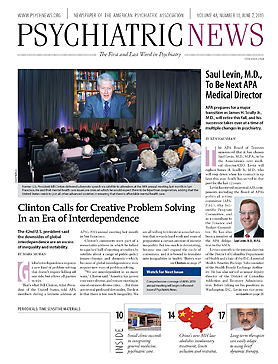A physician by any other name…may not be a physician.
This is the issue at the center of a new bill in Congress designed to limit “misleading and deceptive advertising or representation in the provision of health care services.”
Introduced April 9 by Rep. Larry Bucshon, M.D. (R-Ind.), and Rep. David Scott (D-Ga.), the Truth in Healthcare Marketing Act of 2013 (H.R. 1427) cites evidence that patients are confused by the glut of terminology and ambiguous credentials used to describe the services and qualifications of physicians and nonphysicians alike.
Specifically, the bill refers to national surveys conducted in 2008 and 2010 on behalf of the AMA’s Scope of Practice Partnership (SOPP).
According to the results of the 2010 survey, 93 percent of patients agree that “only licensed medical doctors should be able to use the title ‘physician,’ ” but only 51 percent believe that health care providers’ advertised information clearly indicates their professional status.
When it comes to mental health services, patient misunderstanding may be compounded by the myriad of credentialed care providers who often work in collaboration with psychiatrists and other physicians, noted Matt Sturm, deputy director for congressional affairs in APA’s Department of Government Relations. Some providers also add professional association relationship acronyms to the alphabet soup following their names, which can add to the confusion, Sturm said.
Indeed, the 2010 SOPP survey revealed that while 75 percent of patients correctly identify psychiatrists as physicians, 41 percent also believe that psychologists have medical privileges.
“Patients lack information about the wide diversity of professionals who work in health care settings, and they are understandably confused by the increasing ambiguity of health care provider–related advertisements and marketing,” wrote APA, the AMA, and 13 other medical professional organizations in an April 17 letter to Bucshon and Scott in support of the newly introduced bill. “Because of this uncertainty, patient-centered care and decisionmaking have been compromised, the organizations said.
To address this issue, the bill would prohibit health care professionals from misrepresenting their education, training, degree, license, or clinical expertise and would require the disclosure of licensing information in any advertisement of services.
The bill also charges the Federal Trade Commission (FTC) with enforcing the act. The FTC would also be responsible for conducting a study of health care professionals aimed at identifying the types and frequency of acts and practices that violate the law, as well as any instances of harm or injury that result from the violations.
“As a physician, I understand that health care providers are vitally important to our nation’s health care system,” said Bucshon in an April 15 press release announcing introduction of the legislation. “That being said, we need to take every step possible to ensure that patients are protected. It is imperative that health care consumers have adequate information. . . so that they are able to make wise health care choices.” ■
